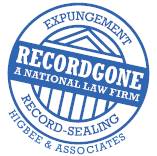It is a common practice for an employer to do a background check on job candidates at some point during the hiring process. However, a new Illinois law that went into effect January 1, 2015 and places restrictions on when a background check may be conducted, which is informally referred to as banning the box. Under the new law, employers will only be allowed to perform such a check if an applicant has been selected for an interview or if a job offer has been extended.

Purpose of the Law
The purpose of the law is to ensure that employers have access to the broadest possible pool of qualified applicants for a job. In some cases, the presence of a prior criminal record may disqualify an applicant who is otherwise qualified for the position. There is a concern that background checks may infringe on the civil rights of applicants in a manner that may otherwise be inconsistent with state or federal employment laws.
What the New Law Provides
The new law provides specific guidelines as to what covered employers are allowed to do and what they are not allowed to do as it relates to their hiring practices. The legislation that has been passed in Illinois may be used as a model throughout the nation as an increasing number of states are grappling with balancing the needs of employers with the rights of job applicants.
Who Does the Law Benefit?
The law may benefit any employee who has been convicted of a crime at any time in the past. Those who have been convicted of nonviolent crimes may benefit the most as they can establish a rapport with an employer prior to an employment decision being made. However, anyone may benefit, as they may be able to find work or at least participate in the interview process, which can be beneficial in the overall job search.
Employers may benefit as well as they may not be able to screen out those who may be qualified to do the job before they have at least had a chance to talk to them. In many cases, it is not possible to get a feel for who a person is by simply reading a simple resume or paper application.
Which Employers are Covered and Exemptions
According to the law, an employer is considered to be any person or private entity that has at least 15 employees in the current or proceeding calendar year. This also applies to any agent of an employer that may be used to find employees for the company.
There are three exemptions to the law for any employer that would otherwise be covered. These exemptions apply to:
- Any applicants with criminal convictions that would exclude them from employment under state or federal law.
- An applicant has committed a crime that would render that person unable to acquire a fidelity bond.
- Any employer who hires workers under the Emergency Medical Services (EMS) Systems Act.
Penalties Under IL Ban the Box Law
Employers who fail to abide by the law will be subject to civil penalties of $500 for a first offense that is not taken care of within 30 days. A subsequent offense or a first-offense not remedied within 90 days can cost an employer up to $1,500 every 30 days. Therefore, employers have a financial interest in making sure that they abide by the law.
Effects of the Law Moving Forward
For applicants, they may feel better about applying for work and feel an extra sense of motivation to look for work despite their record. Although employers are allowed to disqualify applicants for certain offenses, those offenses must be listed ahead of time. Therefore, it makes the process of looking for work a more straightforward and streamlined one.
A flood of applicants who may not have applied for a given job in the past may have more incentive to do so. This can be a boon to employers who now have a larger pool of applicants to choose from. Having an increased number of qualified applicants can make an employer stronger while allowing those with a checkered past redeem themselves and move on from their pasts.



